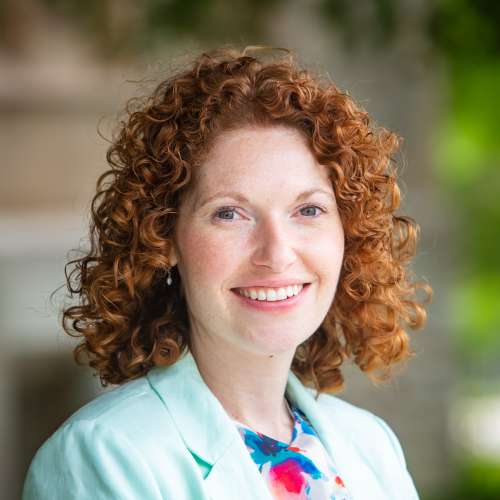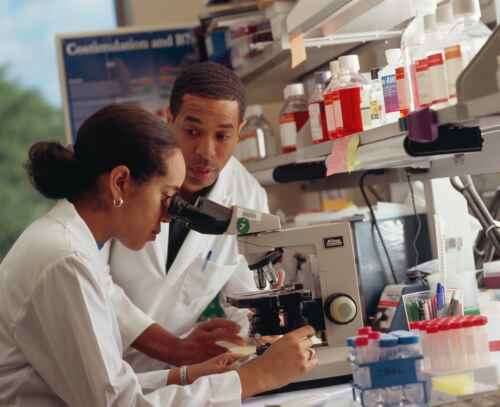By Dr. Jennifer Geddes-McAlister, Department of Molecular and Cellular Biology
This article is republished from The Conversation Canada under a Creative Commons licence. Read the original article.
“A mother’s job is never done.” We’ve all heard this phrase, but do we ever stop to think about what it truly means? How does this simple statement define the overwhelming feelings of motherhood and all its facets?
As a mother and scientist, I know that balancing and succeeding in both professional and personal situations requires strong mentorship and a supportive community — and sometimes, neither of these are available.
While many scientific disciplines, such as chemistry, computer science, physics and biochemistry are traditionally male-dominated, accessibility and opportunity for women and other members of equity-seeking groups across these disciplines are changing and improving.
Despite this improvement, it is crucial to recognize the importance of varied perspectives and lived experiences that diverse people bring to the table. We need to train, mentor and support these individuals to foster an environment for productivity and success.
Moms in proteomics

As a woman, mother and scientist, I find my definition of success is constantly shifting between professional and personal goals and achievements. I realized that to maintain this balance I needed an outlet for sharing ideas and accepting feedback, so I founded Moms in Proteomics.
Moms in Proteomics recognizes and highlights the unique needs of mothers in science, technology, engineering and mathematics (STEM). Specifically, the scientific theme of proteomics, a field dedicated to the identification and monitoring of protein production under different conditions.
Members of Moms in Proteomics not only work together to advance our understanding of diverse diseases impacting humans, animals and plants and make discoveries that have global benefit, including increased food security and improved health — I recently published a book with several members as contributors — we’re here to support one another.
Our Moms in Proteomics community is an international network of women, mothers and their supporters — undergraduate and graduate students, post-doctoral fellows, professors, administrators, as well as industry and government scientists. Most members have children or are thinking about having children and some are supervisors, mentors and peers wanting to learn how to best support the mothers around them.
We provide a forum to share experiences, answer questions and identify means to support mothers at every stage of their career.
I was recently invited to publish an article for Trends in Biochemical Sciences about Moms in Proteomics. I talked about the importance of sharing stories of success and challenges, and building a community of mothers in STEM to support each other and the next generation.
I also highlighted six themes critical to a mother’s inclusion, productivity and well-being. These themes are how to build connections; achieve a healthy work-life balance; the role and importance of mentors; timing of having a family; activities and strategies for success; and how to have realistic expectations for yourself.
Prioritizing well-being
A key priority for us includes finding balance. And we do this by considering and combining mental health and well-being initiatives with professional and personal commitments. Suggestions for success include recognizing your own limitations, setting priorities and boundaries and finding time each week for mindful activities (like exercising, reading).
We also pride ourselves in helping mothers find a supportive mentor, which we hope will turn into a productive and beneficial relationship throughout their career. We also acknowledge, however, that the role of a mentor may shift over time.
When considering having children, expectations, timing and the fear of losing momentum and access to opportunities is paramount. During this time, speaking with mothers who have already navigated these decisions and experiences is valuable. Later, as a mother excels and advances, a mentor may play a guiding role in how to balance the newfound role as a leader and mentor while raising young children.
Removing barriers

The goal of Moms in Proteomics is to provide a network for women around the world to discuss ideas, share stories and provide guidance. Members actively navigate the ultimate test for a healthy work-life balance: motherhood.
Within the community, members experience opportunities for career advancement — they’re often invited to seminars and scientific collaborations. We also make sure to recognize and celebrate achievements, like nominations and promotions.
Over the next six months, Moms in Proteomics is establishing an industry-supported training program. Members will receive hands-on training with state-of-the-art instrumentation and advanced computational platforms to drive innovation and make ground-breaking discoveries.
I’ve received emails from members expressing their gratitude for the initiative and appreciation for an opportunity to connect and share with other moms. Members have met at scientific conferences and collaborative research projects have been started.
The value and impact of building this community is to raise the profile of mothers in their scientific careers, share information and best practices to enhance the experiences and improve institutional policies for better support.
Moms in Protoemics hopes to ensure a sustainable and productive international community of expertly trained scientists, coupled with the necessary resources and tools to balance motherhood. We’re working to remove barriers so individuals can flourish and pave the way for the next generation of scientists to advance even further.
